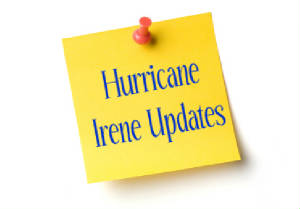A Few Words About Insurance Claims [Fri, September 23, 2011] Homeowners insurance is among the most popular
forms of personal insurance, it is also among the most necessary and often obligatory of all various types of insurance. The
company you've paid to protect you, can become your adversary. As with all kinds of insurance - it is a product you buy, but
hope never to need.
[Fri, September 23, 2011] Homeowners insurance is among the most popular
forms of personal insurance, it is also among the most necessary and often obligatory of all various types of insurance. The
company you've paid to protect you, can become your adversary. As with all kinds of insurance - it is a product you buy, but
hope never to need.
While
it's the insurer's duty to restore you financially in the event of property damage, it's your job to make sure you have adequate
coverage, proper documentation and acceptable proof of loss. Although you’ve been promptly mailing your insurance premiums,
your perspective on what's covered or what is fair compensation won't always match to your insurers. Here are a few tips to
prepare in advance: Know
when to hire help. The more accurate and prompt information you can provide on your claim, the more likely you'll
get your insurance payout. However, the way the information is presented, worded and documented makes a grave difference to
the amount of the insurance settlement. The insurer will send an adjuster to assess what was lost, stolen, or damaged, and
offer a settlement to replace or rebuild. This adjuster works for the insurance company and his loyalty is to the insurer.
Just as you would hire a CPA to do your taxes and an attorney to represent you in court – I highly advice for you to
hire your own licensed Public Adjuster who will work for you and have your best interests. Typically, licensed and experienced adjusters take a small percentage of the settlement and
don't charge you upfront. Because the Public Adjuster works for you, he or she has no obligation to reduce costs for the insurer.
Currently twelve
states — Alabama, Alaska, Arkansas, Iowa, Kansas,
Mississippi, Louisiana, North Dakota, South Dakota, Tennessee, Virginia, and Wisconsin don't have licensing laws that apply
to Public Adjusters. But you can obtain the names of public adjusters in every state who have passed the voluntary certification
process sponsored by the National Association of Public Insurance Adjusters and if you don’t reside in the aforementioned
states, check that your adjuster is licensed by the state you live in and has an "A" standing with the BBB. Information
is the best protection. Whatever is the cause or size of your property damage, your best protection is to keep detailed
and organized records. Take photos of your property and assets. Record your version of the event; take photos post the event,
if possible. Get a police report. Call your insurer as soon as you're able, and keep notes of all related conversations.
Track resulting
medical, home-care, baby-sitting, or housekeeping bills, since some policies cover a portion of those costs. Keep track of
living expenses if you're forced to live elsewhere temporarily. Know the fine print. Truth be told, you'll be most satisfied with your settlement
if you know in advance what's covered and how much things cost to replace or rebuild. That means eyeballing your policy now
with a professional is essential. Pay particular attention to the deductibles, exclusions, and all the small print in your
policy. Why
subject yourself to such torture? Because an insurer's definitions can make the difference between comfort and calamity. Check
out the declarations page, which outlines the limits of your coverage. Coverage D of
the homeowners policy, for instance, outlines how much an insurer will cover if you have to relocate temporarily. Does your
insurer pay up to 10% of your home's insured value, or offer to pay "reasonable" expenses over 12 to 24 months?
Updates
of upgrades is important. Finally, update your policies regularly. Inform your insurer of improvements and additions
to your home — including redecoration of $5,000 or more. Submitting a claim may seem overwhelming
at times, especially if you have little experience in the industry. Insurance companies take advantage of homeowners who are
unfamiliar with the preparation and the handling of a claim, the negotiation of a payout and all the industry knowledge and
experience of a Public Adjuster. You can call me toll free at 1.877.938.8566 (877.ZEVULONI) or email me at joe@florida-pa.com.
Fri, September 23, 2011 | link
Giant Snail Invasion Being Battled In Miami
...What Does This Have To Do With Property Insurance?  [Fri, September 16, 2011] "The silent, slithery invasion of an army
of Giant African Snails in a southwest Miami subdivision has federal and state agricultural officials launching a time-consuming
expensive counter-attack to remove the large slimy creatures" reports MiamiHerald.com.
[Fri, September 16, 2011] "The silent, slithery invasion of an army
of Giant African Snails in a southwest Miami subdivision has federal and state agricultural officials launching a time-consuming
expensive counter-attack to remove the large slimy creatures" reports MiamiHerald.com.
Typically
about 1 cm tall, these snails can grow as large as 20 cm and weigh as much as a kilogram. The Giant African land snail is
one of the most damaging snails in the world because they consume at least 500 different types of plants and can carry a parasitic
nematode that can lead to non-fatal meningitis in humans. About 50 state and federal officials in Miami-Dade are going house-by-house,
removing the slimy pests by plastic-gloved hand. What does this have to do with Property Insurance Claims Blog you ask? Well, research shows
that the Giant African Snails can cause structural damage to plaster and stucco. Question is, will the damage to your home
caused by these snails be covered under your policy? As in all cases, whether a loss is covered or not depends upon the specific policy language.
Though not all policies contain the following language, the standard Homeowners Broad Form states in part: We insure against risk of direct loss to property ...only if that loss is a physical loss to property. We do not
insure, however, for loss: 2. Caused by: e. Any of the following: - (7) Birds, vermin,
rodents, or insects
It is obvious
that snails are not birds, rodents, or insects. Therefore, much hinges on the question of whether or not snails qualify as
"vermin".
Policies of insurance
should have a definitions page, in which certain words and phrases are defined. If the policy does not define the word "vermin",
or does not include the word "snails" in its definition, then snails are not vermin. When policies do not define a term, courts may look to alternate sources
such as the dictionary to give the words their plain meaning. Universal Underwriters Ins. Co. v. Evans, 565 So. 2d 741,
742 (Fla. Dist. Ct. App. 1990). Merriam Webster's defines "vermin" as "small common harmful or
objectionable animals (as lice or fleas) that are difficult to control." In this case, the word "snails" does not appear in the policy or dictionary definition
of the term "vermin". Thus, using the above mentioned policy as example, damage caused to property by snails is
covered.
"It is essential
to appreciate the rule that ambiguous policy language is interpreted in favor of the insured. Here, the term "vermin"
is ambiguous in that it might be understood to encompass "snails", or it might not. The lesson for insurance providers
is that policies must wholly define the terms contained therein if they want to avoid having exclusions interpreted in favor
of the insured" said Matthew Gold, an in-house Counsel at Zevuloni & Associate, Public Adjusters. I highly doubt
that the Giant African Snails are a cause to panic or perhaps are a threat to our already high insurance premiums. However,
yet again I hope to have demonstrated how important industry knowledge, experience and just the right language to a claim
handling process. It can make all the difference between a denied, underpaid or successfully settled property damage claim.
Anyone who believes they
may have seen a Giant African land snail or signs of its presence should call the Department of Agriculture and Consumer
Services toll-free at 888-397-1517 to make arrangements to have the snail collected. Stay
safe!
Fri, September 16, 2011 | link
Hurricane Irene: Case In Point
 [Fri, September 9, 2011] The key to a successful recovery of a property
insurance claim is knowing the exact source of damage, its structural implications to the building and understanding your
policy. This is why I am here. I speak the same language as the insurance companies, but work for you.
[Fri, September 9, 2011] The key to a successful recovery of a property
insurance claim is knowing the exact source of damage, its structural implications to the building and understanding your
policy. This is why I am here. I speak the same language as the insurance companies, but work for you.
During my visit last week to the Outer
Banks of North Carolina I had the privilege to meet some wonderful hardworking citizens who were greatly affected by the storm.
Their homes and businesses were no match to Irene's Fury. The Outer Banks of NC is a major tourist attraction and as such
the economy greatly depends on the tourism Dollars for their livelihood. Unfortunately, this storm couldn't come at a worst
time. Approaching Labor Day weekend!! One of my clients reported a claim to their insurer. The insurer representative asked the Policyholder to describe
the damage caused by Irene. When reporting the damage, the Policy holder stated that rain water had entered the building and
caused damage to the building and the inventory. In a simple world this would sound completely truthful and accurate; however,
the insurance industry is not "simple" by any means. This simple statement made by the insured, who in this case
is not qualified to provide the technicality of the water intrusion, could cause the insurer to deny the loss based on "wind
driven rain exclusion" in fact the insurer advised the policy holder that this type of loss will not be covered. After
inspecting the roof of this Policy Holder I noticed many punctures caused by flying debris and shingles. The HVAC unit located
on the roof partially collapsed and as such created a large opening to the roof. Although a "simple" way of thinking
would describe the rain water as being "wind driven" in this claim this is not the case. An "opening"
created by the wind triggers the coverage for the loss. In most cases, the insurer will not offer you, the unsuspecting insured,
and this information and simply deny the loss based on your statement. I strongly recommend to the Policy Holder to consult
with a licensed and experienced Public Adjuster before you present your claim. Stay safe!
Fri, September 9, 2011 | link
Hurricane Irene: Follow-up & Updates
 [Tue, September 6, 2011] Hope all have had a happy and safe Labor
Day weekend!
[Tue, September 6, 2011] Hope all have had a happy and safe Labor
Day weekend!
It's been over a week since Hurricane Irene struck
United States, although business and homeowners, insurance adjusters and insurance companies are still dealing with its aftermath.
Hurricane Irene caused heavy flood and wind damage creating a substantial
volume of commercial and residential property damage insurance claims across many cities, towns and states. Media coverage of post Hurricane Irene has been extensive, abundant, detailed and compelling
thanks to reporters, analysts and eye witnesses. Therefore, instead of repeating what has already been said, I've put together
a list of relevant and interesting articles that represent various sources and points of view. Recommended reading: 1.
Fitch: Hurricane Irene Losses Manageable [Source: www.insurancejournal.com] 2. Insurers waive Connecticut hurricane deductibles [Source: www.usatoday.com] 3. Insurance lawsuits to follow Irene [Source: www.reuters.com] 4. Will Hurricane Irene affect Florida insurance rates? [Source: www.sun-sentinel.com] 5. Perdue secures federal aid to 15 more NC counties impacted by Hurricane Irene [Source: NBC 17] As always, I value your suggestions, questions, opinions and an opportunity to help you with your property damage claim. I am ready to help you with your Hurricane
Irene insurance claim and obtain a fair, timely settlement.
Tue, September 6, 2011 | link
Insurance Department Offers Tips For Filing
Flood Insurance Claims [Thu, September 1, 2011] Hurricane Irene, which was downgraded to
tropical storm by the time it reached Connecticut, has nevertheless left many business and homeowners stranded with no electricity
and dwellings full of water. Within 36 hours, the massive storm had entered the region, dumped buckets of rain that flooded
streams and some cellars, toppled trees and knocked out power, and then blew its way north, leaving behind it a brilliant
late summer day and many insurance claims to be filed within the next few months.
[Thu, September 1, 2011] Hurricane Irene, which was downgraded to
tropical storm by the time it reached Connecticut, has nevertheless left many business and homeowners stranded with no electricity
and dwellings full of water. Within 36 hours, the massive storm had entered the region, dumped buckets of rain that flooded
streams and some cellars, toppled trees and knocked out power, and then blew its way north, leaving behind it a brilliant
late summer day and many insurance claims to be filed within the next few months.
The State of Connecticut, Insurance Department issued the following press release for those whose properties sustained flood damage and carry flood insurance policies. This release offers helpful tools and information which I highly recommend to all my Connecticut friends and clients. Please note that
flood claims must be filed within 60 Days of the flood.
I am licensed and admitted in the State of Connecticut, so if you have any questions or concerns
please contact me now at 954.742.8248
Thu, September 1, 2011 | link
|